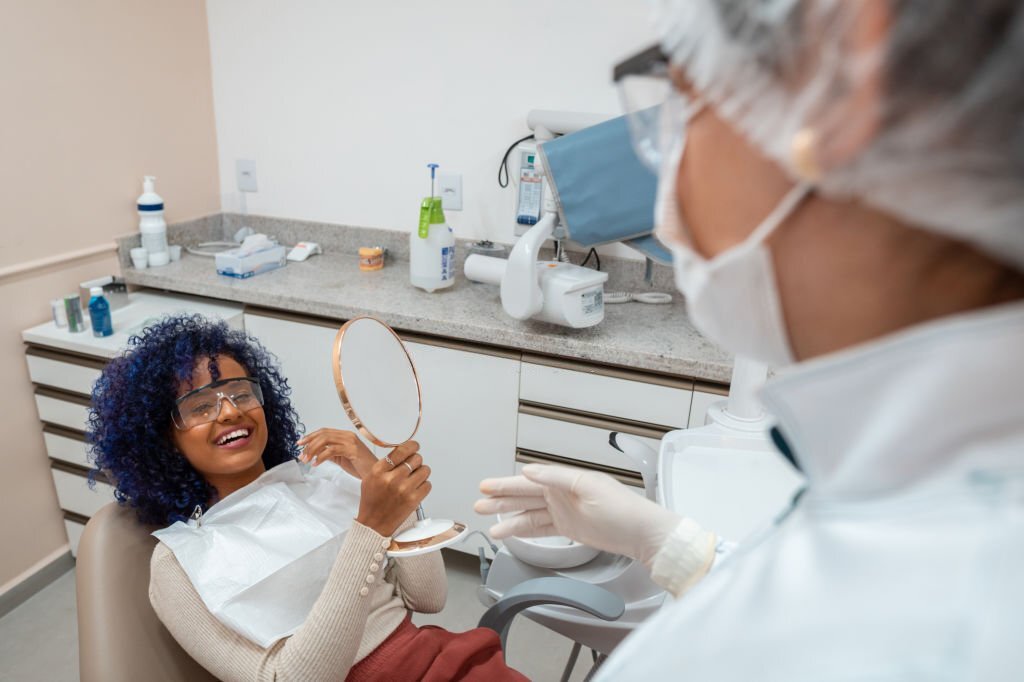Boca Dental and Braces perform oral health treatments and identify systemic diseases in the mouth. They lead dental teams, including dental assistants and hygienists, and provide patient care in private practices or at hospitals.
Many students gain practical experience by shadowing or interning. Dental schools value this experience and often weigh it heavily in their admissions process.

Preventive care focuses on maintaining good oral health and preventing the onset of dental problems. It includes regular visits to a dentist and practicing good oral hygiene at home. These services can lower your risk for gum disease, tooth decay, and other serious dental problems that may cause pain and discomfort and reduce your quality of life. They also prevent the need for invasive and costly treatments such as fillings, root canals, and dental implants.
During preventive care, the dentist and dental hygienist will thoroughly clean your teeth and catch any warning signs that you might be in danger of developing a problem. Almost all dental issues, including cavities and gum disease, are preventable. Preventive dental services are also less expensive than addressing an issue once it has gotten out of hand, which is why most insurance plans cover preventative treatments.
Your role in preventive care includes brushing your teeth twice a day with a soft bristle toothbrush and fluoride toothpaste. You should also floss daily and use mouthwash to remove any food stuck between your teeth. Getting plenty of vitamins and minerals from fruits and vegetables can also help prevent problems with your teeth.
A preventive dentist will also apply fluoride during a checkup or cleaning. This mineral helps strengthen your teeth and can reverse decay in its early stages. This treatment is especially important for those who need more fluoride from their diet or the local water supply (most cities fluoridate municipal water but not private wells).
Other preventive care services include X-rays and sealants. X-rays provide valuable information about your oral health, and sealants are plastic resins that harden on the surfaces of your teeth to cover cracks and grooves, which can prevent tooth decay. These are particularly useful on back teeth, which have more nooks and crannies that are difficult to brush effectively. They can also prevent children from developing tooth decay, which is more common in this age group.
Besides removing diseased teeth and performing oral surgery, dentists also provide restorative care. This includes repairing fractured teeth, filling cavities, treating gum diseases, and placing restorations. They are also responsible for educating patients on proper dental hygiene. They may also perform X-ray examinations to detect and treat dental issues that aren’t visible to the naked eye.
They are also trained to spot warning signs in the mouth that may indicate other health problems in the body, such as anemia, diabetes, and heart disease. A dentist can refer these patients to other healthcare professionals for further evaluation.
Dentists are often required to work long hours, especially if they have private practices. But after about ten years, many find reasonable satisfaction in their careers and earn significant incomes. They may even take on more responsibilities, such as overseeing a staff of dental assistants, hygienists, and technicians.
Despite being a lucrative career, dentistry is a high-risk profession. Dentists must undergo rigorous academic and clinical training and pass state exams to get their licenses. Those who want to teach or research must also obtain additional degrees. However, dentistry is a promising field for those highly motivated to improve the lives of others.
Dental procedures can be complicated, and many people are unfamiliar with them. This is why it is important to consult a professional before making decisions. A dentist can help you select the best procedure for your needs and explain the process from start to finish.
A dentist can help you restore your smile and avoid future health problems. They can repair broken or decayed teeth, remove wisdom teeth, and even replace missing ones. A dentist can also make recommendations for oral care, including diet, brushing, flossing, and using fluoridated products.
A dentist can help you keep your teeth healthy and beautiful forever. They can prevent gum disease, leading to tooth decay, heart disease, and other serious health conditions. They can also recommend treatment options for your dental problems, such as root canal therapy and other procedures.
A person’s teeth and gums are a central part of their appearance. When one is dissatisfied with the condition of one’s teeth or mouth, cosmetic dentistry offers solutions. A dentist specializing in this area can address issues with the color, shape, and size of a patient’s teeth and address problems such as crooked or missing teeth.
Cosmetic dental procedures are primarily intended to improve the overall appearance of a person’s smile, though some have therapeutic benefits. These include teeth whitening and veneers. The latter are thin shells bonded to the front of a tooth, and they can correct various cosmetic problems such as severe staining, chipped teeth, or gaps between teeth.
Another common procedure is composite bonding, a filling made from tooth-colored materials such as porcelain or resin. This can be used to repair a chipped tooth, restore a degraded one, or cover a broken filling. The dentist will put the composite on a tooth and then use a curing light to harden it. The bonding will be virtually invisible, and it can give a tooth a fresh, healthy look.
While cosmetic dentistry is often thought to be purely elective, it can substantially affect a person’s self-esteem and confidence. Many people feel uncomfortable when they have a stained, chipped, or misshapen tooth, and these cosmetic procedures can resolve the problem and make them more comfortable in social situations.
Most general dentists can perform cosmetic work, but some have completed additional courses and training to become more specialized in this area. This may include a fellowship with an oral surgeon or periodontist or taking extra courses to become a specialist in orthodontics or jaw surgery.
Some cosmetic procedures are not covered by dental insurance, so a person should consult their insurance provider to determine their coverage for these treatments. Discussing these procedures with a dentist and getting their opinion before making any decisions is also important.
When a dental problem is urgent, it requires immediate treatment. This includes any issue that results in severe pain or bleeding, the loss of a tooth, or a condition that threatens other parts of the body (such as a serious infection or broken facial bones).
While it is impossible to prevent all dental problems, a good oral health program with routine visits and early detection can reduce the likelihood of needing emergency care. Contact your dentist immediately for instructions if you are experiencing a dental emergency. They may provide an after-hours emergency number or recommend an on-call substitute.
Dentists perform a wide range of procedures to treat oral health issues. They diagnose problems by thoroughly examining the patient’s mouth and reviewing their dental X-rays. They also consider the patient’s medical history and lifestyle habits to develop a comprehensive treatment plan.
They can repair cracked, chipped, or broken teeth. They can also place or remove dental implants and bridges. They can treat abscesses and other serious infections of the gums and jaw.
A dentist can also restore damaged dental appliances, such as dentures or crowns. They can also perform root canals and other advanced treatments to save damaged teeth or tissue. They can also treat patients who have jaw or facial injuries or who have had a stroke.
A dentist must have excellent communication skills to explain complex procedures to patients. They need to be able to put their patients at ease and provide them with the reassurance they need during stressful situations. They must also collaborate with other healthcare professionals to deliver complex dental and medical services. While most dentists work in private practices, some also serve in community health clinics or hospitals. They also work with governmental agencies to provide care for the underserved. This type of service is increasingly important as the public becomes aware that dental problems can affect their overall health.
